
Abstract: This article traces the evolution of MoonPads, a social benefit company founded by the author, weaving a narrative that spans personal experiences, academic pursuits, and a commitment to sustainability, social equity, and menstrual justice. The article explores the interconnected journey from childhood influences, through academic endeavors in sustainability education, to the entrepreneurial realm, shedding light on the intersection of gender equity and environmental sustainability. MoonPads emerged as a response to period poverty, seeking to provide accessible and eco-friendly menstrual products while challenging societal stigmas surrounding menstruation.
Continue Reading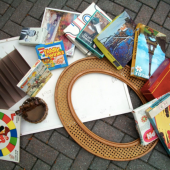
Abstract: This photo essay illustrates my journey of decluttering my childhood home. I have spent eight-months decluttering so far. Interestingly, I initially planned to declutter quietly and not document my experience. But the more I decluttered, the more I felt there was a story to tell, a cautionary tale of sorts. In this essay, I document my reflections on decluttering and raise questions about Western consumer culture. Logos and brand names have intentionally been edited/removed from photos.
Continue ReadingLink to the JSE Winter 2023 General Issue Table of Contents Editor’s Note: This contributed poem connects with the Councils of All Beings article by Karen Hindhede in this issue. In this circle wide in species and sparkling imaginings In this circle of story-sharing about sharing stories The call goes out rippling through Creatures, Places, […]
Continue Reading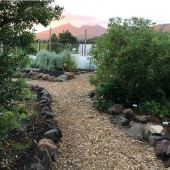
Abstract: Finding love and reciprocity in the garden during challenging times by growing community-based learning experiences.
Continue Reading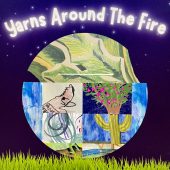
Abstract/Description: What happens when educators and professionals take a long-standing pedagogical activity, The Council of All Beings, and reshape the experience into a picture book? This paper provides a link to the story and relates the storytelling process that occurred with such an adaptation. The paper then explores the benefits of storytelling for young people and considers how co-creating stories can be an antidote to ecophobia while fostering empathy and sparking emotional engagement in the natural world. Finally, the author suggests that co-creating storytelling activities and picture book creations could be used to help children reimagine the world.
Continue Reading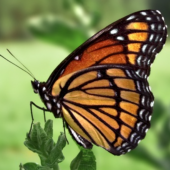
Abstract: This word journey explores flaws in our approach to cultivating environmental ethics and caring for biodiversity, especially among youths, through the lens of Carson McCullers’ classic story about the tragic but common failure of so many to achieve love between human beings.
Continue Reading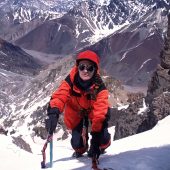
Abstract: Glacial archaeology is an emerging field of scientific research, rapidly expanding in Scandinavia, the Alps and North America. And yet its origins are to be found in the Andes of Argentina. Constanza Ceruti is the first woman high altitude archaeologist in history. Her pioneering contributions to this field of research involve having ascended and explored, sometimes solo and unsupported, more than one hundred peaks above 5000 meters in remote corners of the Andes. In 1999, Ceruti codirected the scientific excavations on mount Llullaillaco (6739 m), the highest archaeological site in the world, and co-discovered three extraordinarily preserved frozen mummies, together with an outstanding collection of artifacts from the Inca civilization (currently housed at the Museum of Mountain Archaeology in Salta, Argentina). In recent years, Ceruti has climbed hundreds of mountains in different parts of our planet, to study (from an anthropological perspective) their role in pilgrimage, folklore, popular devotion, mythology, identity and tourism. Her academic production includes more than one hundred scientific papers and twenty-five books on sacred mountains of the Americas, Europe, Asia, Australia and Polynesia. A northern hemisphere predominance in anthropology at large, and particularly in high mountain and glacial archaeology (associated also with mobbing and male chauvinsm in mountaineering), have led to a lack of proper recognition, not only for her own pioneering career, but for the rightful place of the Andes at the forefront of academic research on the sacred role of mountains in ancient cultures.
Continue Reading
Abstract: After 20 plus years as a sustainability educator, the author had one of those lie-awake-at-night-staring-at-the-ceiling experiences where she faced some hard questions about the state of the world. In this article, describes her subsequent journey investigating the role of listening in shifting to a life-sustaining society and her Ph.D. research into how to support listening across differences to address complex social-ecological challenges.
Continue Reading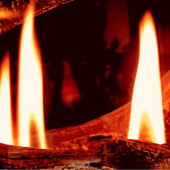
This piece explores the author’s relationship with fire (domestic fire and wildfire) and the lessons inherent in a rural life that is both dependent on fire and threatened by it. It explores the curriculum of fire as one of nonattachment, of community cohesion, of the legacy of colonialism and of the connection to place.
Continue Reading
Abstract: Aldo Leopold’s classic essay, “Thinking Like a Mountain,” has been a touchstone of environmental ethics and sustainability education for over seventy years and continues to challenge and inspire wildlife ecology undergraduate students, and many more. But has it lost some power in the face of mounting evidence of accelerating damage and growing threats to the natural world, threatening biodiversity and human society on a global scale? Students and others now need another Leopold story, one that encapsulates an environmental ethic with a call for urgent action, a metaphor that urges not just change, but rapid transformation.
Continue ReadingThis editorial overview provides an introduction to this special Journal of Sustainability (JSE) issue devoted to water and climate change, which is being released during United Nations World Water Day 2020. The article contextualizes some of the water security risks that are exacerbated by climate change, such as increasing floods and droughts. This piece further provides a brief overview of the articles in the special water and climate issue of the JSE.
Continue Reading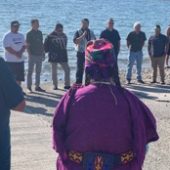
An Indigenous salmon re-joining ceremony on the dammed Columbia River inspires a broader understanding of the potential for human participation in healthy natural systems.
Continue Reading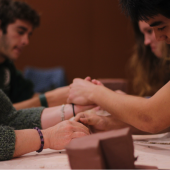
Abstract: This article describes an innovative, grant-funded symposium for creative social stewardship that sought to blend the triad of art, education, and the natural environment through a focus on socio-cultural sustainability and community engagement. The purpose of this article is to share foundational information related to the origins of the symposium, describe the tenants of community arts initiatives, feature a session snapshot, and discuss the value of creative social stewardship as a part of daily practice. We conclude by making recommendations for future endeavors in cultivating creative social stewardship conferences or initiatives, ultimately promoting the idea that collaborative, community-based and arts-focused events might inspire reflection on connection, nature, and creativity in ways that nurture sustainability.
Continue Reading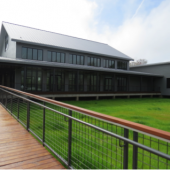
An Urban Nature Center: Take 2. My Journey to Sustainability Education in Rebuilding a Nature Center
Continue ReadingI’ve got maps spread out
all over the kitchen floor
headwaters splintering into deltas
Human beings today are living in times of unprecedented social and ecological crisis, a crisis that is to a significant degree of human making. The impending arrival of the Anthropocene geological epoch gives this crisis a name. As academics with a sense of responsibility for our relationships with planetary kin, the awareness of unfolding crisis calls on us to reach a deeper understanding of assumptions about the world, and of modes of living that these assumptions permit, which have been a human contribution to crisis. Furthermore, the Anthropocene calls us to act upon our new understanding. Taking modern European imperialism as a key generative force in the development of Anthropocene, we provocatively develop the idea in this article that the life-ways and worldviews of Indigenous Peoples colonized by European imperialism – including, potentially, marginalized and suppressed life-ways and worldviews of Indigenous Europeans – may hold critical insights by which to negotiate the Anthropocene and to challenge and change habits of thought and action that have led us to its threshold.
In doing so we outline the rationale behind the Alliance for Intergenerational Resilience (AIR) whose objective is to build social-ecological resilience by connecting and supporting locally based projects for the innovative and renovative co-evolution of social and ecological systems. AIR aims to generate inter-cultural relationships between Indigenous communities and communities no longer considered indigenous to place in order to support more meaningful, life-giving social and ecological relationships for all people. In order to further describe AIR’s objectives and its aspirations, the article draws on the Alliance’s inaugural event, the Elders’ Voices Summit, four days of Indigenous-led sustainability education with more than 100 international participants, representing community, university, government, philanthropy and not-for-profit sectors. We conclude by casting our hopes forward to envisage future re-indigenization work that supports the connection and reconnection of human beings with the Earth and the places of the Earth to which we belong.
Continue Reading
This paper describes a group of mountain museums set amidst the Eastern Alps and the Dolomites, considering their significance for the cultural identity, heritage education and sustainable tourism in South Tirol. The importance of the Mountain Museums is analyzed in connection to their setting and to the development of the communities in the area. The exhibits are analyzed considering their role in the construction of a regional identity and in the education towards the appreciation and preservation of the natural and cultural heritage of mountains, locally and worldwide. For the purpose of this research, the author visited the six buildings belonging to the net of the Messner Mountain Museum and she conversed with the director, Mr. Reinhold Messner, who is often credited as the most remarkable alpinist in history.
Continue Reading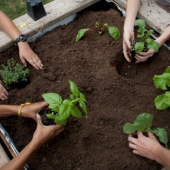
In consideration of the possibilities for place-based learning and resilience, this article offers reflections from the author’s praxis in regenerative neighborhood development in Austin, Texas from 2006 to 2015. Consistent with the themes of the Winter 2015 issue, the article considers psychological, social, political, and economic dimensions of place-based engagement, citizen action, and stewardship within the particular context of gentrifying urban landscapes and contested visions of sustainable cities. Although the author shares a particular situated experience, the themes explored are pertinent to others in the field who share a desire to advance environmental justice in fast-growing cities. The article presents a model for regenerative praxis drawn primarily from the Theory U framework for collaborative action research and the LENSES framework for regenerative design that helped the author contribute more positively to the social and ecological resilience of her neighborhood in the face of gentrification and social tension. Drawing from examples from two neighborhood-based projects, the article offers a call to the field to integrate unprecedented curiosity, compassion and courage into sustainability research and praxis in the contested landscapes we call home. As we consider the prospect of place-making and learning, the article offers a call to engage in un-learning and un-making so that we might co-create new patterns of inhabitation. The article offers some general propositions about priorities for future place-based action research.
Continue Reading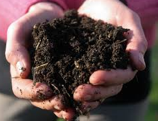
This personal narrative illustrates the role composting has played in the author’s connection to place throughout her adult life, and informs her scholarship today. Over the past twenty-something years she lived in close to twenty different homes, and yet always found space and time to create a compost/planting pile. The outcome is that between her efforts, kitchen scraps, and dishwater the soil gained fertility, and she too connected more deeply with each element. The essay proposes that home and community composting practices can inform our view of learning, shift educational paradigms, and help address the complex environmental and social concerns we face today.
Continue Reading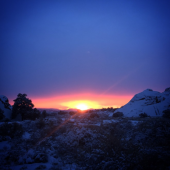
Place is more than an environment – it is about the activities, memories, and relationships that are a part of it. It has a history. This essay is about the places that are a part of a relationship and experiences with a family member. It entangles memories of childhood, war, politics, learning, and the simplicity of mountain tops. As this essay examines, the materiality of an environment is much more than mere matter and becomes inseparable from relationship and meaning.
Continue Reading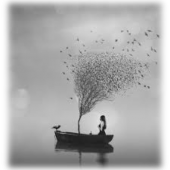
The author explores her own personal journey toward a sense of place as she draws connections among our natural and human community, early childhood development, peace, and sustainability. The story contributes to the continuing dialogue that explores the relationship of place to humans through various viewpoints, approaches, and experiences.
Continue Reading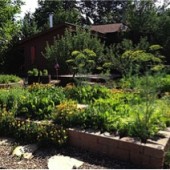
Abstract: This interview-based article discusses how permaculture philosophy, practice, and education represent important avenues for sustainability-oriented hope and agency. The author interviews Permaculture Design Certification instructors from the Central Rocky Mountain Permaculture Institute’s two week long course held in summer 2015. Interviewees offer perspectives on permaculture as a well-founded and well-developed philosophical approach to sustainability, as a framework for practical application of sustainability principles, and as a foundation for community organizing and development. The author seeks to inspire sustainability educators and practitioners to consider permaculture as an important vehicle for teaching, learning, and doing sustainability.
Continue Reading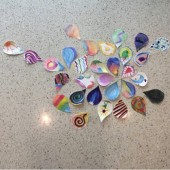
Abstract: Integrating contemplative methods into discussions of sustainability can create a sense of hope and agency in our students. In this case study, I present four tools that I use in my upper-level undergraduate/graduate seminar to engage students more deeply in reflection on topics in environmental ethics.
Continue Reading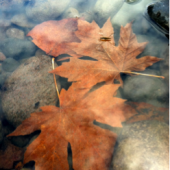
Abstract: Through several original poems and contextual narrative reflection, “Finding Hope and Gratitude in the Climate Change Classroom” explores what it means to be a climate change educator and reflects on the author’s own experiences with cultivating agency and hope in the classroom.
Continue Reading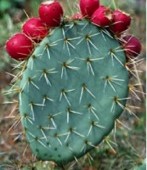
Abstract: The author has written extensively about American Indian relationships to the natural world with a focus on his published concepts of kincentricity and kincentric ecology (Salmon, 2000). Both are explanatory models of how American Indian cultures feel a sense of direct relationship and responsibility toward their surroundings. Traditional American Indians understand that they are directly related to everyone and everything in their natural surroundings. Everything in one’s environment is animated with a life force. How then does one teach kincentric ecology in an urban environment? A suggestion is to assign projects that will help students recognize the relationships happening all around them and to recognize that we humans exist in a relationship with everything around us. The author devised a project asking students to make periodic observations of the sun and/or moon. In the process of their observations students were asked to become aware of and to journal about their surroundings during their observations. The result was that students became periodically immersed in their natural surroundings and were, therefore, exposed to a facet of kincentricity.
Continue Reading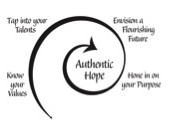
Abstract: Hope is a human process of discovery and perseverance that is based in personal values, a vision of the future, and a sense of purpose. This essay gives a brief overview on the role of phenomenological research in discovering the meaning of people’s lived experiences, such as the experience of hope. An example of phenomenological research on field ecologists’ lived experiences of climate change is provided in order to illuminate the experience of “silver linings” as the experience of hope while living in the midst of the dark cloud of climate change. An overview of a reflective curricular activity designed to cultivate hope and purpose in sustainability studies is provided.
Continue Reading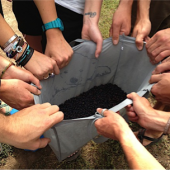
Abstract: The authors engage in a written dialog about their experiences with and understanding of hope and agency in the context of higher education happening in the midst of many converging crises of sustainability. The authors discuss their personal and professional views about teaching sustainability and about leading and collaborating in sustainability-oriented efforts. They consider sustainability and sustainability education efforts as both internal processes that take place within the person and external processes oriented toward others and the world. They explore questions of leadership and authority in relation to hope and agency and discuss the importance of making and communicating honest appraisals of the current situation of humans and the biosphere as a basis for fostering clear-eyed hope and agency in themselves and students.
Continue Reading
Abstract: This article describes the connection between love and one’s “home”. It is this love and a strong sense of place or connection to one’s home that ushers in the need for sustainability
Continue Reading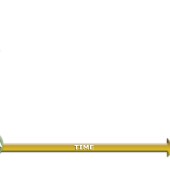
This article looks at the Wisdom Development Process and the importance of the heart in ensuring sustainability. This will be a key process for developing leaders in the emerging Wisdom Economy.
Continue Reading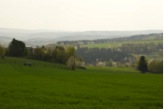
Sustainable being is the concept of living a lifestyle that is grounded in physical, mental, emotional and spiritual wellbeing. In this article the author shares how her experiences and learning during a sabbatical in India and Germany helped her make the connection between sustainability education, change initiatives, whole health and heartful living. An overview of sustainable being is provided in the context of five principles of living shared by a vedic-eco community in India who is involved in global sustainability efforts. These principles are related to those living in western society with an emphasis placed on the role of sustainable being for educators involved with change initiatives.
Continue Reading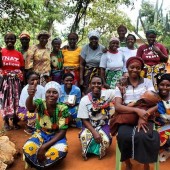
Table of Contents: JSE March 2015 — Sustainability: What’s Love Got to Do with It? PDF: Gurecki JSE March 2014 Love Issue Abstract: The impacts associated with products such as solar lamps and rain water harvesting tanks often tend to focus on economic, environmental, and health indicators. Authors Gurecki and Makori make the case for […]
Continue Reading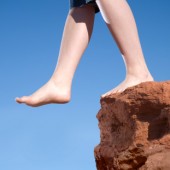
This article is an exploration of vulnerability and the experience I had as an artist inhabiting the art of writing poetry; a creative medium that is new to me. I begin with a brief examination of vulnerability as it is defined today culturally and move towards a personal exploration of what vulnerability feels like within an intentional and unfamiliar creative process. Through this process I learned from vulnerability– things like like navigating open space, respecting how growth unfolds, that vulnerability is an integral part of loving an living life fully, the relationship between vulnerability and love, and the magic that happens when bodily experience aligns with word. This article is an exploration, and affirmation, of vulnerability as a deep site for learning and growth and a requirement, if we are to love deeply.
Continue Reading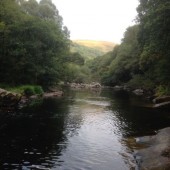
‘Sustaining Love’ explores education for sustainability as a psycho-cultural transformation rooted in moments of personal emotional enmeshment in Nature. It is argued that while technical and economic development provides some of the necessary conditions for meeting our collective sustainability challenge, our choices along the way must be informed by a sense of identity and shared fate with infra-human species and the natural world.
Continue Reading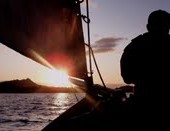
What began more than thirty years ago as a personal journey to explore my Scandinavian roots has evolved to a deep understanding of my mythopoetic connections with nature that has transformed my teaching. Through the process of exploring, learning, teaching and living in Norway, I have developed a field course for upper division students at Prescott College. From learning to sail traditional wooden boats to assisting with a harvest at a thousand year old farm, students discover the meaning of sustainability thr
ough direct experience, and how people have survived in a landscape that has directly influenced the Scandinavian cultural movements of Deep Ecology, and Friluftsliv or “Free Air Life”. The sharing of cultural wisdom handed down through generations of how to live sustainably with a landscape is rapidly disappearing and is key to our survival.
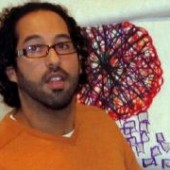
In this inspirational presentation, Gibrán Rivera talks of how we work within the “tribe” to make change happen. He speaks of how we use stories to create our future as “ancestors in training” and this is the way that epiphanies which lead to real change will be incorporated into the community base.
Continue Reading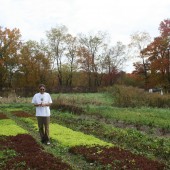
In this fascinating personal and educational journey, Terril Shorb asks us to look locally and look at our own subsistence first when we consider sustainability. While acknoledging a role for large-scale efforts based on technology, he believes in the inward solution that relies on relationships, being resourceful, working reciprocally, and finding a way of living in gifted subsistence.
Continue Reading